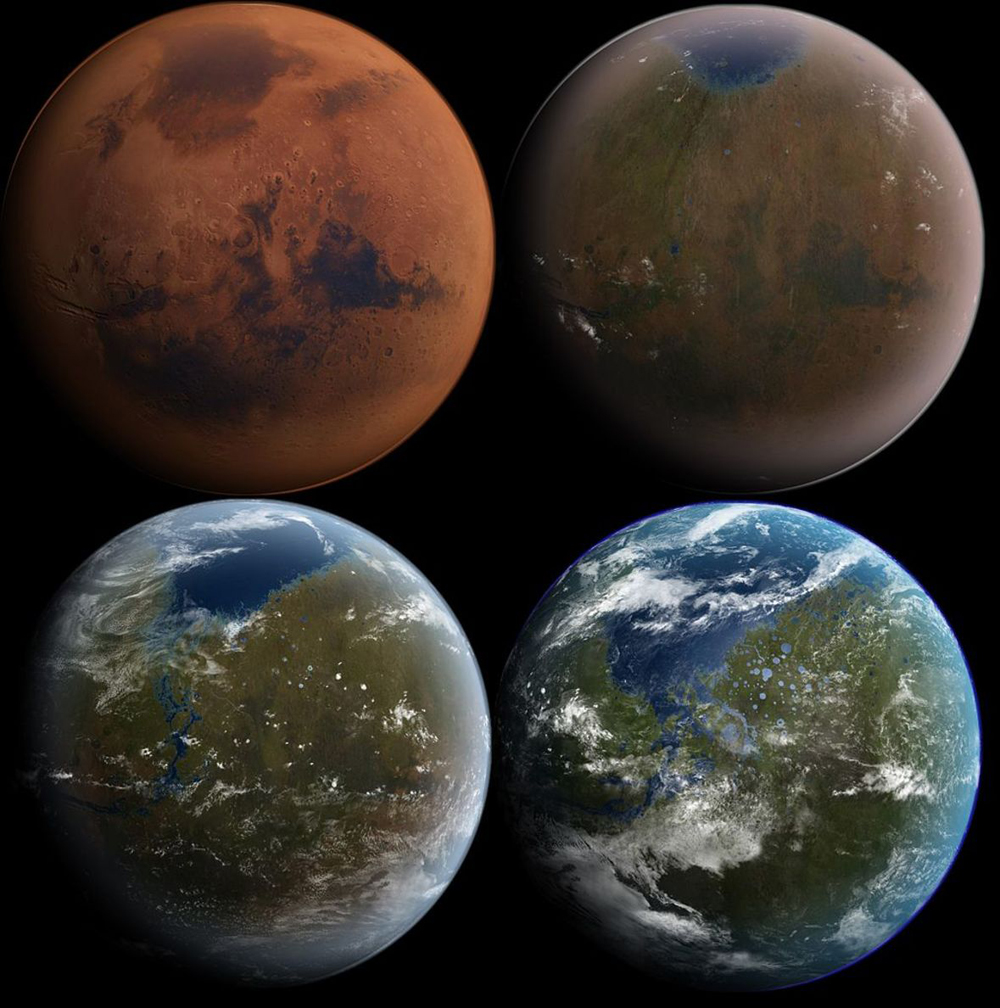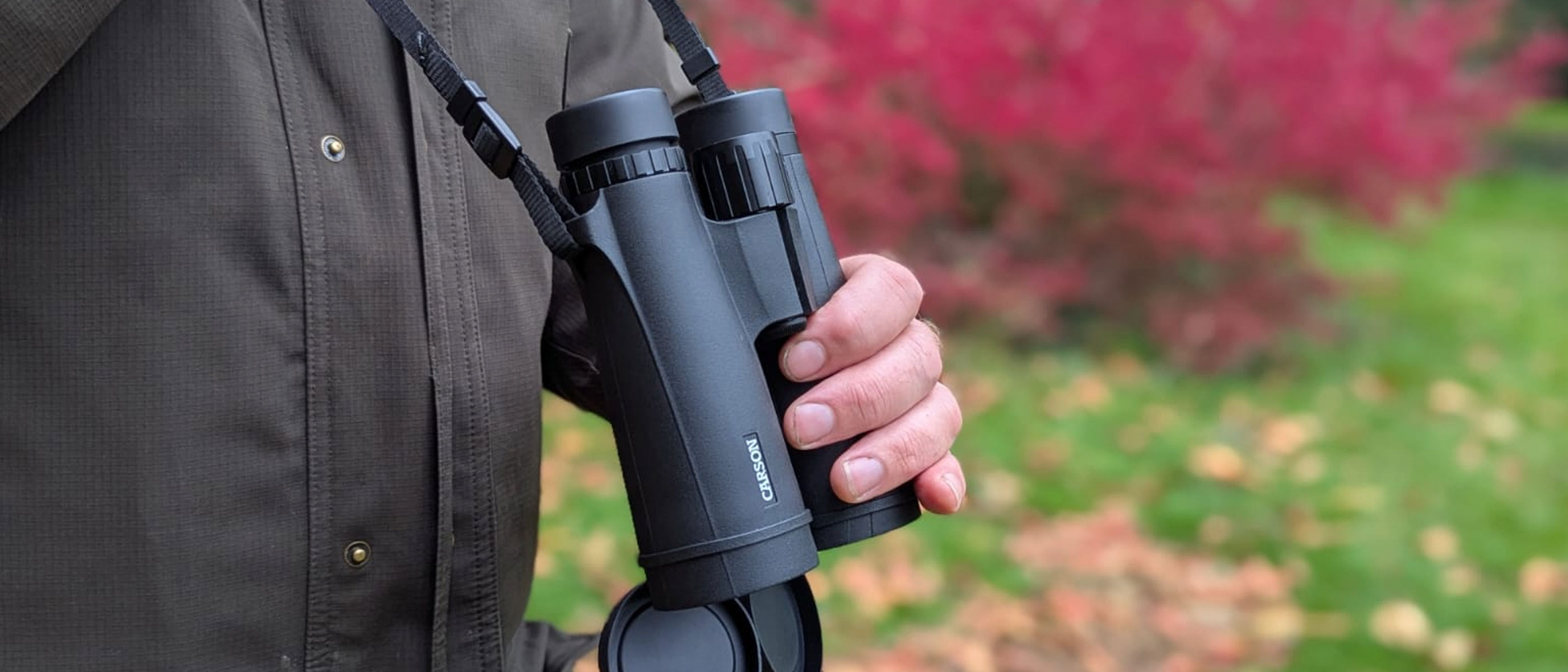'Glad You Asked': New Web Series Tackles Mars Terraforming (Exclusive Clip)
Episode 1 of "Glad You Asked" looks at a long-held sci-fi dream.

At the beginning of a new Vox YouTube episode discussing Mars terraforming, host Cleo Abram cheerfully describes how her team just got stuck in the name of science.
Abram and a group of others were traveling through one of the most Mars-like places on Earth, to better understand how humanity might get a foothold on the Red Planet. But their vehicle gets mired in the muddy sand, and you'll have to watch the episode to see where they are and how they get out.
Abram is one of four hosts for Vox's upcoming YouTube original series, "Glad You Asked," whose first episode explains how to make the Red Planet more habitable. The series covers questions such as why humans cry and what happens after we die. Episodes 1 through 5 (including the Mars episode) will debut weekly starting Tuesday (Oct. 8), and episodes 6 through 10 will debut weekly starting Jan. 8, both on the Vox YouTube channel and YouTube Learning.
Related: Make Mars Livable with Asteroids: A Terraforming Plan
In a trailer, Abram explains that leading thinkers such as The Planetary Society co-founder Carl Sagan, SpaceX founder and CEO Elon Musk and The Mars Society founder and president Robert Zubrin are among those who believe we can make Mars more like Earth.
The process is called terraforming, which means transforming a planet into something that can support life as we know it — more explicitly, the carbon-based life that Earth is known for. It won't be easy. Humanity must address issues with ethics (What about possible Mars microbes living on the planet?), technology (How do we make this possible?) and finance (Can we afford it?) before we can pursue terraforming.
But terraforming is a common trope in science fiction, and Abram says proponents believe we can do it for real by following three steps.
Breaking space news, the latest updates on rocket launches, skywatching events and more!
The first step is to create a magnetosphere around Mars. Long ago, the Red Planet lost its global magnetic field, which protected it from the solar wind, the stream of charged particles flowing from the sun. As a result, Mars' atmosphere was stripped away, and the planet became much colder and drier than it had been.
Luckily, the same didn't happen on our own planet. "Every day we should all thank the huge magnetic field that surrounds Earth," Abram says in the episode.

One way to create an artificial magnetic field involves putting a satellite into Mars orbit. While Abram doesn't discuss the details in the episode's trailer, she says the idea comes from NASA. In a 2017 meeting, Jim Green — who at the time was director of NASA's Planetary Sciences Division and is now the agency's chief scientist — suggested an artificial magnetic field could be generated through a large dipole. You can read the details via NASA's Astrobiology Magazine.
Step 2 of terraforming Mars would be thickening the atmosphere through the addition of carbon dioxide, which would trap infrared light and raise the temperature of the planet. (We're already doing this on Earth, where industry and consumer emissions are causing global warming.) But experts disagree on how to do this, Abram said. Musk has suggested dropping nuclear weapons just above the polar ice caps of Mars, which would explode and release trapped carbon dioxide and water vapor into the atmosphere. Others have said that we need even more carbon dioxide than what is naturally available. For example, Zubrin suggests building factories on the Red Planet to release more of the gas.
Step 3 would be releasing bacteria to absorb some of the nutrients on Mars and release oxygen into the atmosphere, the way oxygen built up in Earth's atmosphere billions of years ago. But this step will take a long time. Abram suggests it would be a few hundred to a few thousand years before the microbes can do enough work to make the planet habitable.
- How Living on Mars Could Challenge Colonists (Infographic)
- Shell-Worlds: How Humanity Could Terraform Small Planets (Infographic)
- SpaceX's Mars Colony Plan: How Elon Musk Plans to Build a Million-Person Martian City
Editor's note: The original version of this story incorrectly said that the terraforming episode is the fourth in the series. It's actually the first, and premieres Oct. 8.
Follow Elizabeth Howell on Twitter @howellspace. Follow us on Twitter @Spacedotcom and on Facebook.

Elizabeth Howell (she/her), Ph.D., was a staff writer in the spaceflight channel between 2022 and 2024 specializing in Canadian space news. She was contributing writer for Space.com for 10 years from 2012 to 2024. Elizabeth's reporting includes multiple exclusives with the White House, leading world coverage about a lost-and-found space tomato on the International Space Station, witnessing five human spaceflight launches on two continents, flying parabolic, working inside a spacesuit, and participating in a simulated Mars mission. Her latest book, "Why Am I Taller?" (ECW Press, 2022) is co-written with astronaut Dave Williams.
